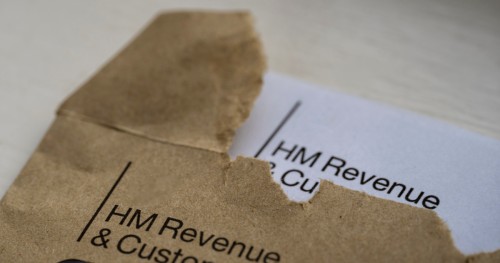Capital Gains Tax (CGT) guide for contractors

As a contractor with your own limited company, there may come a time when you don’t need your company anymore.
Perish the thought!
But this is when Capital Gains Tax, which can apply to you in other settings, will become really relevant as a contractor – arguably it will be your most significant interaction with CGT as a contractor, writes chartered accountant Graham Jenner, founder of Jenner & Co.
Why are you no longer loving ‘LTD’?
It may be that you have taken a permanent position or that your circumstances have otherwise changed. It could even be because of dreaded IR35!
Perhaps you are leaving the UK and a UK limited company is no longer the appropriate vehicle for you.
Maybe you have decided to retire.
As a result, you must decide what to do with the limited company.
The options are:
1. Close it
2. Sell it
3. Give it away
4. Keep it - in case you need it in future
When does CGT apply in a contractor limited company setting?
Capital gains tax applies when you ‘dispose’ of your shares in the company.
On the face of it, only Option 2 -- ‘Sell it’ -- appears to involve a disposal.
However, there is effectively a disposal for tax purposes under Options 2 and 3. Under Option 4 – ‘Keep it’ – there is no disposal but it may be worth considering a disposal instead.
Let’s look at each of the four options, in turn.
Option 1 – Close it!
If you decide to close the company down, the company will be ‘liquidated’, either informally or formally.
Liquidation is the act of turning a less liquid asset into a more liquid asset. A liquid asset is cash or an asset that can easily be turned into cash.
Cash is, therefore, the most liquid asset!
What is meant by ‘cash’?
So, liquidation really means turning all of the company’s assets into cash. But by ‘cash’, we don’t mean physical cash in the form of notes and coins! We mean money, typically held in a bank account.
All of the company’s assets will be turned into cash -- debts owed to the company will be collected in, physical assets of the company will be sold and any debts the company owes will be paid off.
At this stage, the company will only have money sitting in a bank account.
This money can then be distributed to the owners i.e. the shareholders. Some or all of this money may be paid in the form of a dividend (in which case it is income and subject to income tax), or it may be paid as capital distribution -- in which case it is treated as a disposal of the shares and subject to capital gains tax.
Benefits of a capital distribution
A capital distribution can be beneficial because there is a CGT annual exempt amount, though in recent years this has been reduced drastically.
For 2023/4, the CGT annual exempt amount was £6,000, but this had reduced to £3,000 in the current tax year -- 2024/5 tax year.
In addition, capital gains above the annual exemption are typically taxed at a flat rate of 10% on the disposal of shares in a contractor limited company (provided certain conditions apply).
This is particularly beneficial if you are a higher rate taxpayer -- CGT at 10% is considerably lower than the dividend tax of 33.75% -- applicable for higher rate taxpayers.
There may be some juggling to do but, overall, it is likely that, if there is any money left in the company at the point where it is wound up, a capital distribution will be preferable.
A capital distribution arises where there is a formal winding up, whereby a liquidator is appointed to collect in the money and pay off the liabilities -- albeit for a fee!
At the end of the process, if there is any money left, the liquidator makes payments to the shareholders.
Why is £25,000 in the limited company business bank account relevant?
In addition, a capital distribution can also be made in an informal winding up, provided the amount is less than £25,000 in total (and certain other conditions are met).
This used to be thanks to an extra statutory condition (‘ESC16’) which simplified the closing down of a company where the amount involved was below the £25,000 threshold. The measure has now been turned into a statutory rule in CTA10/S1030A introduced by article 16 of The Enactment of Extra-Statutory Concessions Order 2012, SI2012/266.
So, the above enables a payment, or payments, of less than £25,000, in total, made prior to the company being closed, to be treated as a capital distribution. The benefit of the tax treatment under Capital Gains Tax noted above, rather than income tax, can then be obtained.
Much of the above is also relevant when considering a sale of the shares, as we shall see under the next option.
Option 2 – Sell it!
By ‘it’ we mean the company, and it is the shares that are being sold!
In reality, a contractor limited company’s shares are generally not worth anything beyond the net amount that could be realised if the assets were liquidated and the liabilities paid off.
Other types of company may have a value beyond the assets, referred to as ‘goodwill.’ Somebody buying the company might pay more for the shares than the asset value because the company has a brand or its name is known, or it has existing clients or customers that will generate income into the future.
With a contractor’s limited company (also known as a PSC – Personal Service Company), the shareholder/director is usually key to the company’s ability to bring in income. If they are selling up and not going to be involved in future, then there is no value beyond the net assets.
Can your contractor limited company be bought or purchased?
While it would be unusual for someone to want to buy a contractor’s PSC, there are circumstances where it might be attractive to a buyer.
For example, if the company has a lucrative contract and the existing shareholder/director can introduce the new shareholder/director to the client. Effectively, the new shareholder/director has acquired the right to fulfil the contract. Of course, it involves the client accepting the new shareholder/director! But the client may still prefer this route to going out to the marketplace again -- especially if the existing contractor will be on hand to effect a smooth handover.
The capital gain on the sale of the shares is the amount received less the original cost -- usually a nominal sum of £1 per share.
The full annual exemption noted under option 1 is then deducted (if not already used against other types of capital gains in the tax year). Tax is then calculated, usually at 10%, again as noted under option 1.
Option 3 - Give it away!
Although rare, our accounting practice has advised in situations where the shareholder/director simply gives the company to someone else, notably a family member.
This usually arises where the company has no net assets of any great value.
It is, perhaps, more of an administrative convenience -- perhaps the son or daughter needs a company and they can simply take over the existing company rather than setting up a new one.
What’s important if giving your company to your children?
The important thing to note is that, if the shares are given to a connected person, e.g. a son or daughter, then this is treated as a disposal at ‘market value.’
And in this case, ‘market value’ would mean the value of the net assets. The person making the gift would then pay CGT on the gain, if it is over the annual exemption.
It would be a relatively rare set of circumstances that gave rise to this option, but it is included here for completeness.
Option 4 – Keep it in case you need it in future!
It may seem sensible just to keep the limited company!
Indeed, if there is money left in the company, this could be ‘drip fed’ to you as dividends over a number of years, depending on your circumstances.
However, for the reasons outlined under option 1, above, regarding the benefits of tax on a capital distribution, closing the company, and simply forming a new company, if and when you need one, should be seriously considered.
Speak to an accountant, if you are in this position.
Moving abroad?
While very few contractors reading this will be moving abroad – because of course the UK is astonishingly, magnetically alluring (!), if you are contemplating moving abroad, it is well worth taking advice from an accountant.
In particular, it could be tax-efficient to defer the closure of your company until after you have left the UK.
When else is Capital Gains Tax payable?
As stated at the top, contractors’ activities can incur a Capital Gains Tax bill from HMRC in other settings!
After all, CGT is payable when you dispose of certain assets on which you have made a gain.
So this might include you disposing of the following:
Shares -- listed shares or shares in a private company, including your own contracting company (as explained above).
Other investments -- generally investments which grow in value, as opposed to those that simply accrue income, are subject to CGT.
But certain types of investment (such as Gilts and ISAs) are specifically CGT-exempt. This exemption is designed to encourage people to save/invest.
Property -- such as land and buildings. Although fortunately, your principle private residence (‘PPR’) is exempt from CGT.
Crypto-currency -- HMRC guidance indicates that gains on selling one asset and buying another are taxable, and not just when selling back to sterling!
Other assets -- certain other assets are subject to CGT, though many such as cars and those assets with an expected life of 50 years or less, are exempt.
Capital Gains Tax and contractors, in a nutshell…
Capital Gains tends to peak as a significant concern to contractors at the stage where their limited company is not needed any more -- but there may be different options available to you. Differences in the treatment of payments falling within Capital Gains Tax and those falling within Income Tax, can make it all seem very daunting -- when all you probably want to do as a contractor is stop using your company.
Speaking to an accountant who is familiar with contractor limited companies can simplify matters and it could well pay dividends, excuse the pun!




Comment
Log in or create your account to react to the article.